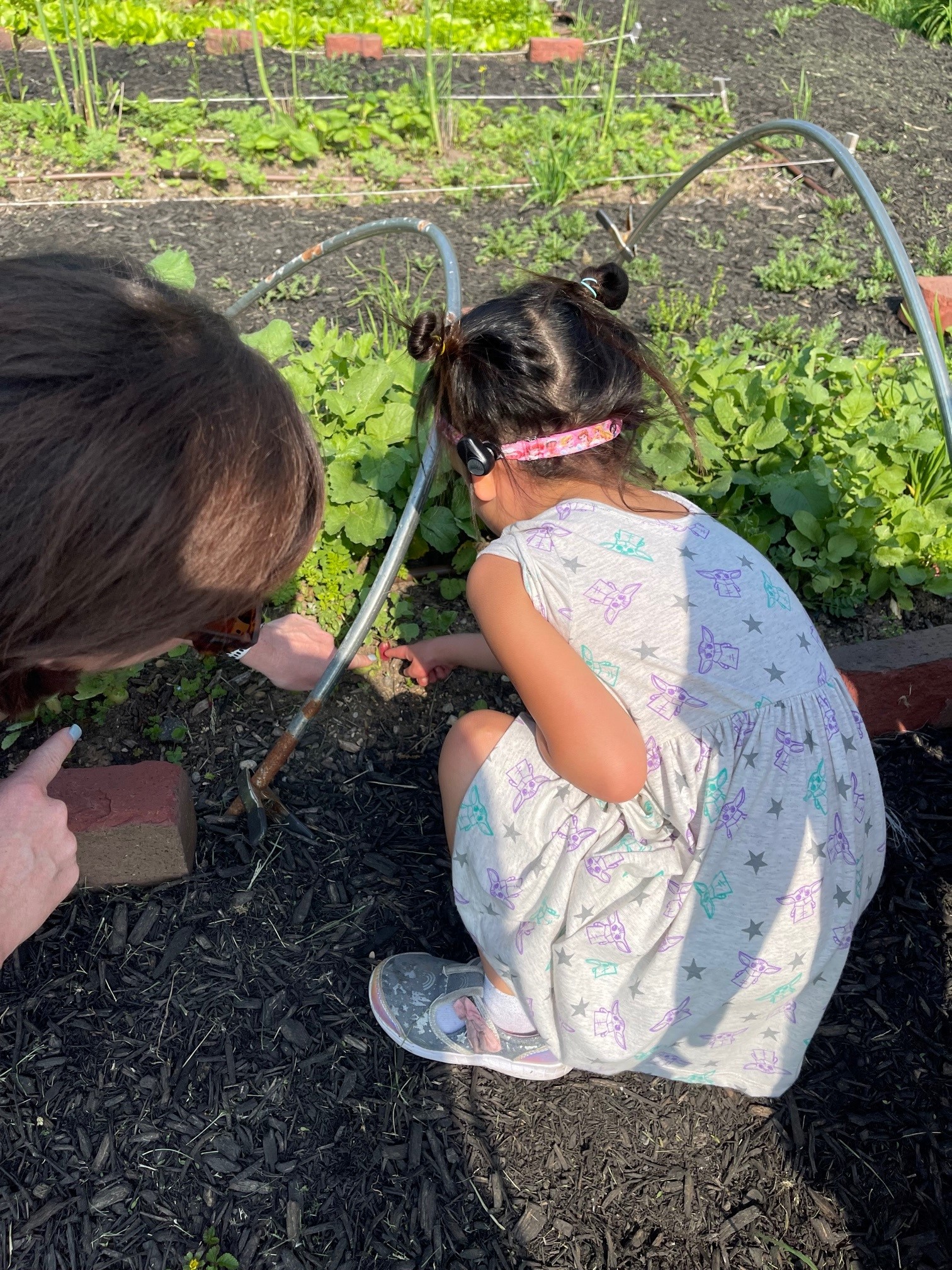It’s time for “The Educator Sez’, an occasional post designed to help increase Listening and Spoken Language through everyday activities. Today’s post is from Theresa Bartoni, MS and Early Childhood Special Educator.

“Everyday interactions with your child are simple moments in your day that can help increase language,” she assures. “These activities seem really simple but can provide building blocks for children to increase their listening and spoken language.”
Here are a few tips according to your child’s age:
Infants (Birth to 1 year):
- Play peek-a-boo using lots of facial expressions and express the feeling you are showing (“peek-a-boo, I am sad”).
- Sing and act out ‘pat-a-cake’ or other familiar songs and show actions. For example, when you sing the wheels on the bus, make the hand motions mimic the rolling of the tires, swishing of the windshield wipers, etc.
- Make different sounds in front of baby such as ringing a bell, crumbling paper, clapping your hands, tapping wooden spoons, banging measuring cups; as you do each action say to the baby, “do you hear the………?”
Toddler (ages 1-3 years):
- As you go through your home or the store, point out objects and have your child repeat it for you; then walk around again, this time playing “I Spy”. Say “I spy an apple. Do you see an apple?” Have your toddler point and respond, “I see the apple too! Now your turn.” Name the object when they point to it and practice saying it together.
- “What’s in the Bag?”—place objects in a bag or box with an opening and have the toddler pull out the object and say to them, “what did you find”? Model and have the child say, “I found a ______.” Practice using the full sentences, not just the name of the object, to encourage language use.
Preschool (ages 3-5):
- Play Memory: take 2 of the same sticker or picture and glue a sticker on each card. Gather 4 sets (8 cards) to mix up and have your child name what object they turn over. Gradually increase the number of cards to increase vocabulary and their memory skills.
- Playing Simon Says helps your preschooler develop listening and following direction skills as well as copying skills. Gradually increase the pattern to help with their mastery of complex directions.
- Make noise patterns using body parts and verbalize the pattern: Tap, clap, tap, clap OR stomp, clap, stomp, clap.
Activities for any age:
- If you are reading books: point out objects and ask simple questions, “where is the dog?” or “what is the boy doing?” Consider alternative endings or ask them to predict what is going to happen. “What do you think he’s going to do next?”
- Play Pop the Bubble: blow bubbles and have your child identify where the bubble landed or say to them: “Pop the bubble on the floor, or on your arm etc.”
- Puzzles are a great activity to develop fine motor skills
“Spending time with kids is the best way to positively impact their development,” Theresa smiles. “You may not know it but you are a wonderful teacher for your kids! Bring out your inner child and enjoy playing in any manner with your child.”
